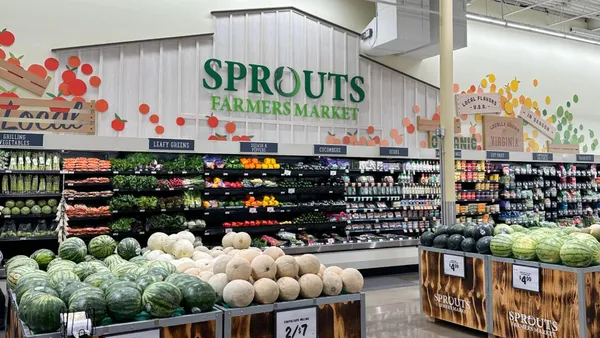Dive Brief:
- Facebook ad growth dropped to 51% in Q1 compared to 57% over the same period a year ago, falling in line with predictions from the social network's executives; Adweek now reports that three digital shops said their clients' ad spending on Facebook has continued to decline in the second quarter of this year, pointing to a persistent slowdown.
- L.A.-based Wpromote's clients are seeing a particularly dramatic change in their Facebook spending, with an expected Q2 lift of just 51% compared to a 154% year-over-year lift from the same period a year ago; Wpromote campaigns also saw a 51% drop in cost-per-click rates during the quarter, per Adweek. New York-based iCrossing predicts a client spending increase of 40% this quarter compared to the 48% year-over-year lift from the same period last year, and another, unnamed New York agency said its cross-client Facebook spending is flat, making for the first time in a long while where there's been no hike in investment.
- One reason brands are slowing down on Facebook advertising is to take more time to analyze results and determine how effective marketing on the platform is in driving KPIs like lead gen, e-commerce conversions and brand lift, Adweek said. Some are also looking to diversify spending and test other platforms.
Dive Insight:
An ad growth slowdown has long been expected by Facebook, and CFO David Wehner noted on a recent earnings call that "ad loads will play a less significant factor in driving revenue growth after mid-2017." Now that some of the tangible effects of that stagnation are more readily apparent, a question lingers over how Facebook can continue to drive revenue and keep brands interested and heavily invested in core offerings like News Feed.
Wpromote CEO and Founder Mike Mothner told Adweek that Facebook has become a "super-mature" platform, and noted that the company is monetizing better. Still, a series of metrics errors last year has made some in the industry wary of the success of Facebook marketing, and the Adweek report underscores how many are pulling back to take more time to actually dig into where the platform delivers the most value.
Facebook, for its part, appears to be propping up a proliferation of original video content as its next big draw to expand ad space and attract some of the ad dollars typically put toward digital competitors like YouTube and Netflix, along with traditional TV. Earlier this week, Facebook announced two original series, and previously signed partnerships with millennial-focused media outlets like BuzzFeed and Vox Media to produce more premium video content.











